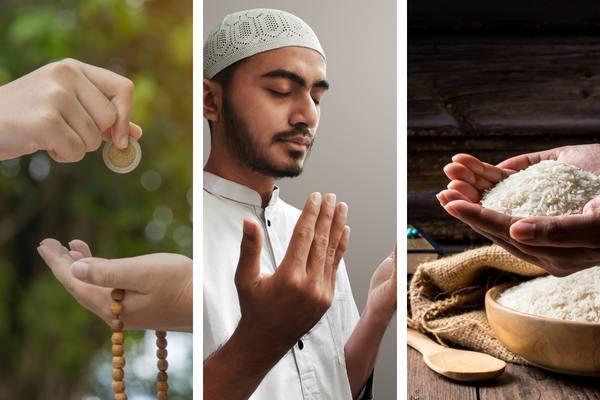
As one of Islam's Five Pillars, Zakat is an obligation that Muslims are obliged to fulfil regularly. It is an act of giving that helps people spiritually and socially.
Zakat is a financial term pertinent to Islam that promotes the distribution of wealth that makes an outflow from the riches and an inflow to the poor.
In this blog, we will examine the Islamic concept of Zakat and its significance for Muslims, converts and reverts.
We will also look at its definition, how it is calculated and distributed, and how it is paid. So, to gain a proper insight about Zakat, keep reading this blog till the end.
Contents
- Why do Muslims give Zakat?
- Islamic Law regarding Zakat
- Zakat Calculation Methods
- Who Qualifies for Zakat?
- The role of Zakat in everyday Muslim life
- The Distribution of Zakat
- Conclusion
- Small World Money Transfer App for transferring Zakat internationally
Why do Muslims give Zakat?
Islamic charity known as Zakat comes from the Arabic root Z-K-W, which denotes purification, growth, and blessing.
Giving the Zakat to the poor is a kind of devotion and a means of cleansing, hence adhering to this principle is obligatory.
The purpose of Zakat is to promote social justice, and alleviate poverty within the Muslim community by transferring wealth.
Islamic Law regarding Zakat
In Islamic law, the Zakat rules are laid forth. A Muslim must meet several Zakat requirements to get Zakat, some of which are as follows:
- One must have at least the required amount of money, known as Nisab, to be obligated to pay Zakat. Its worth is set relative to the price of gold or silver, which varies over time.
- Only wealth that is more than one's necessities and debts is eligible for Zakat.
- For wealth to be liable to Zakat, it must have been in the owner's possession for an entire lunar year (Islamic Calendar).
- Zakat is a religious obligation and should be given to help the poor.
Zakat Calculation Methods
Although the exact amount of Zakat to be distributed can be complicated to determine, the rule of Zakat is to donate 2.5% of one's taxable wealth each year. The Nisab sets this figure, which is meant to represent a just distribution of how much their surplus wealth is.
Here are the steps to determining your Zakat:
- Calculate your total worth, which can include cash, investments, precious metals, and more.
- Deduct from your total assets and liabilities you currently have, such as loans.
- Figure out 2.5% of your wealth's net value if you're eligible for tax breaks.
- Give this figured sum to the destitute, orphans, and other underprivileged people in your neighbourhood.
Who Qualifies for Zakat?
Those who are eligible to receive Zakat are:
- The Poor (Al-Fuqara): Those who are financially unable to provide for themselves.
- The Needy (Al-Masakin): People who are struggling monetarily but are not homeless.
- Zakat collectors (those entrusted with the task of accumulating and doling out the alms).
- New Muslims who want to develop their faith and integrate into the Muslim community but require financial support to do so.
- Debtors (to help them get out from under their debts).
- Displaced or helpless travellers (the Wayfarer).
The role of Zakat in everyday Muslim life
For Muslims, Zakat is central to their beliefs and daily lives. It serves multiple crucial functions in their daily lives:
One's wealth and spirit might be cleansed via the act of devotion known as Zakat distribution.
- Zakat is the redistribution of money from the wealthy to the poor. It furthers the cause of social justice and helps close the wealth gap.
- Muslims have a stronger sense of solidarity and mutual support, thanks to Zakat's emphasis on giving back to the community.
- It is an effective means of reducing poverty and meeting the necessities of the world's less fortunate people.
- In addition to strengthening Islamic beliefs, the act of donating Zakat also encourages compassion and empathy for people in need.
The Distribution of Zakat
The method of distributing Zakat depends on the giver and the recipient. Some frequent approaches are as follows:
- If you know people in your neighbourhood who qualify for Zakat, you can give it to them immediately.
- Many Muslim organisations and charities accept donations of Zakat and then disperse it to those in need. For donors who like to keep their donations organised, this can be a good choice.
- Electronic calculation and distribution of Zakat is possible for Muslims thanks to several websites and mobile apps such as MuslimPro and IslamicFinder.
- Some companies have payroll deduction procedures that make it easy for workers to deduct a certain amount of money each pay period to be used for Zakat contributions.
Conclusion
In Islam, Zakat is more than just a charitable contribution; it is a religious obligation and a path to greater social equality and personal development. Muslims are obligated to share 2.5% of their money with the poor as part of their faith and to improve society as a whole.
It is crucial for Muslims and non-Muslims interested in Islam's customs and beliefs to have an understanding of Zakat, its regulations, and its significance.
Small World Money Transfer App for transferring Zakat internationally
Do you want to send Zakat to help your community back home?
Picking the best way to send Zakat online includes considering things like cost in transfer fee, transfer speed, and the network of countries you can send out money to from one app.
If you need to send Zakat to another country or convert US dollars or GBP to another currency, look for an app like Small World Money Transfer, which has a broad worldwide reach and reasonable exchange rates.
Download the app and sign up now!